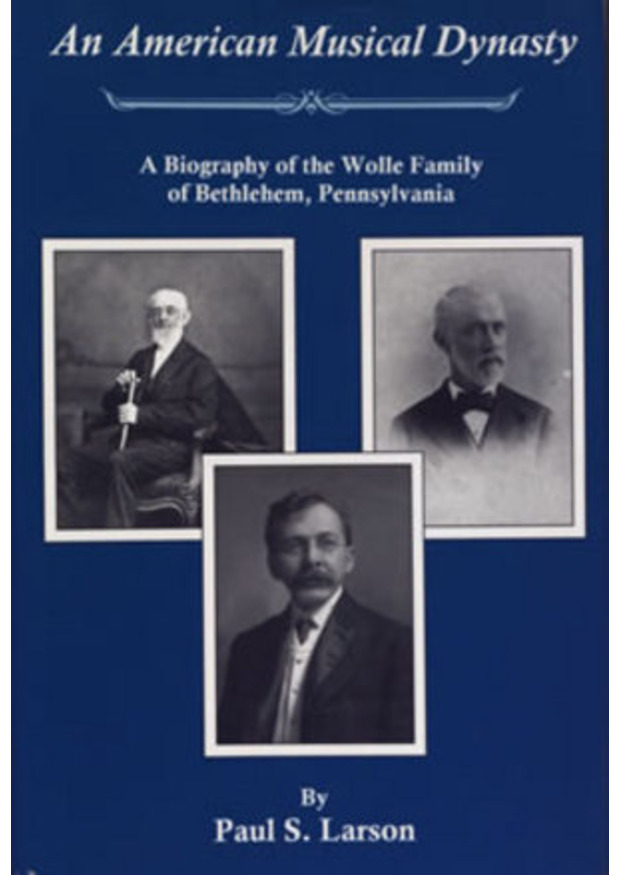A Biography of the Wolle Family of Bethlehem, Pennsylvania
For one hundred years, Peter, Theodore, and J. Fred. Wolle formed an American musical dynasty. While each musician was rooted in the Moravian musical tradition, particularly through the innovations of The Bach Choir of Bethlehem, their influence extended beyond the Moravian Church and became a major force in Bach performance in America. The early characterization of Bethlehem, Pennsylvania, as the American Bayreuth remains an apt one to this day.
The musical tradition that shaped these musicians was centered in Nazareth (1740) and Bethlehem (1742), the first Moravian communities in Pennsylvania. In addition to schools for young children, the Moravians established academies for young men in Nazareth and for young women in Bethlehem, both well known for their excellent faculties of European trained musicians who transplanted European musical excellence to America. In the late eighteenth and early nineteenth centuries, each academy provided a music education unsurpassed in America. Each institution also was closely attached to the vital music- making that pervaded all Moravian communities. This deep reverence for music in Nazareth and Bethlehem nourished and trained many fine musicians. For generations members of the same families sang, played musical instruments, and composed sacred music together.
The Wolles became one of the most outstanding Moravian musical families as their influence eventually extended into the mainstream of American concert life. Peter Wolle, the first member of the dynasty, was never a professional musician. He served the Moravian Church as an organist and composer when called upon, but remained a lifelong cleric. He was elected the first American Moravian bishop. Theodore, his son, became a professional musician after apprenticing as a cabinetmaker. In his adult life, he was a professor of music, an organist, a choirmaster, and a composer and was the first Wolle to work outside the Moravian church. J. Fred., Theodore's cousin, gained national prominence as an organist, the first conductor of The Bach Choir of Bethlehem, and a leader of the American Bach Revival. He was also a choir master, a composer, and an academic.
The lives of these three men also mirrored a profound shift in American music: the secularization of sacred music as patronage moved from churches to universities and capitalistic industries. Nowhere is this shift of patronage etched more clearly than in the history of Bethlehem, Pennsylvania, where these three men lived major parts of their lives. The course of this change is a major theme in this book. Bethlehem, which began in the eighteenth century as a closed Moravian community steeped in music, became by the end of the nineteenth century the site of Lehigh University and The Bethlehem Steel Corporation. Both continued the musical tradition and were major supporters of The Bach Choir of Bethlehem.
This book is also about Moravian cultural patterns that produced so many musically productive men, women, and children who still shape life in the city of Bethlehem.













